Conversation With Racing Legends
Sliders All: Kenny Roberts, Wayne Rainey and Mert Lawwill discuss racing
The Quail Motorcycle Gathering, now in its ninth year, has become famous around the world for its incredible display of historic motorcycles. Held on the lush lawn of the Quail Lodge & Golf Club in Carmel, California, the event included more than 350 lust-inducing vintage and custom motorcycles.
The Ninth Annual Quail Motorcycle Gathering
The event also honored two-time AMA Grand National Champion and three-time World 500cc Grand Prix Champion Kenny Roberts as this year’s Legend of the Sport.
“Getting Kenny here was a personal coup,” says event director Gordon McCall. “He doesn’t really go for the grand master thing, so it’s cool that he accepted. I don’t think there is a bigger name in the motorcycle world. Kenny can seem stand-offish, but he’s not in real life. He just loves to tell a story.”
We got to witness some of this storytelling when Roberts joined three-time world 500cc World Championship winner Wayne Rainey and 1969 Grand National Champion Mert Lawwill for an interesting discussion with McCall about their racing exploits. The conversation was insightful, interesting and occasionally hilarious.
McCall: You and your son Kenny Roberts Jr. are the only father/son world champions. You certainly inspired Junior, who was recently inducted into the International Motorcycling Federation (FIM) Hall of Fame. Who inspired you as a racer?
Roberts: Nobody pushed me. Somebody dared me to ride their minibike, and it scared the hell out of me. I decided, “I gotta do that.” So I made one. With Junior, we tried like hell get to him to play golf, but he wouldn’t do it. You don’t want your son to follow in these footsteps — not to mention the danger, but it’s just a rough life. But I sat him down and told him, everyone is going to tell you that you won’t be as good as me. If you can handle that, I’ll let you race.
McCall: Was it the winning that drove you, or just the personal interest in being as fast as you could be?
Roberts: It probably was neither. I just kept wanting to do it better, to do it to the maximum — to achieve the perfect lap or the perfect race. It didn’t matter if I was second or third, I felt if I rode the motorcycle better than anyone else, then I was happy, win or lose. And I still got just as drunk if I lost.
McCall: How did you make the transfer from dirt to asphalt?
Roberts: I had a Yamaha, and Harleys kept throwing crap all over me. They blew up a lot of dirt, and I had really soft leathers. Once I got on a roadrace bike, it was easy. I didn’t have to wash crap off my leathers every race. Going to Europe was easy. I could just put the same leathers on everyday.
McCall: You’re known for revolutionizing roadracing style. How did that happen?
Roberts: That shows how old I am I guess. I just felt comfortable [with a knee-down, sliding style], especially around slower hairpins, more than sitting straight up and down. Early in my career, me and Kel Carruthers had the same motorcycle — we built them. His front was bald, and my rear was completely bald. I thought, why is that? Why is my rear tire bald? I started putting things together. I’m doing this differently. Of course, he thought I was crazy.
McCall: What else would you have done if you weren’t a racer?
Roberts: I was too short to do what I wanted to do. Basketball was out of the question. I probably would have been a janitor somewhere.
McCall: What was it like to be the first American to win a 500cc world championship?
Roberts: To hear the national anthem, it made the hair on the back of my neck stand up. The first time, they didn’t even have a national anthem. We had to go find one. To do it the way I did it – the first time I ever went to Europe – that’s a higher level than just winning a championship.
McCall: Did your battles with British champion Barry Sheene bring out the best in you?
Roberts: It was a love-hate relationship. We would talk about stuff, and I would always listen and think, that’s bullshit. He always had to get a jab in. It got so tense, I couldn’t wait to see the magazines to see what he said, so I could say something about him. But he was very quick.
McCall: You had an unprecedented six wins at Laguna Seca. What made you so successful there?
Roberts: It had fast corners, which I excelled at. It also had banked corners, so tires didn’t seem to make so much difference. Banked corners helped that out. [It was great] to race in front of home fans. I never got to do a GP in America. This was home. If you go to France, the French are fast; if you go to Italy, the Italians are fast. I didn’t have any of that. I could come back to Laguna and show off.
McCall: Tell us about your charity, the Welcome Home Heroes Foundation.
Roberts: We started that five years ago. Michael Anderson, a junior racer, was killed in action, and his dad had a ride in honor of his son. He asked if I would go. I said maybe I could do something to raise even more money. And we raised half a million dollars. All the money goes to Welcome Home Heroes Foundation.
Kenny Roberts American Heroes Benefit Dinner
McCall: Mert, what did you see in Kenny early on?
Lawwill: I saw agility on a motorcycle that you could not believe. We would go trail riding and what he could do was mind boggling.
McCall: Kenny, what was it like racing with Mert?
Roberts: I had a race one time – it’s a funny story – in Terre Haute, Indiana. I passed Gary Scott on the outside of Turn 3 every lap. I set him up for the last lap, but I didn’t realize Mert was behind me, watching all this. So on the last lap, I stick it underneath him, pushed him into the marbles, and I hear this Harley going rrrrr down the straight. Mert starts to go by, and I just grab his knee and pull myself by. He was laughing. But Mert won, of course.
Lawwill: Kenny was one guy you didn’t have to worry about at all. He would go high, or go low, and you didn’t worry. Others rode like they had blinders on. If they weren’t all the way in front of you, you didn’t know what they would do or where they would go. Kenny was always reliable. And I respected him as a rider so much we could ride together side by side touching — no problem.
McCall: Kenny, what did you see in a young Wayne Rainey that made you want to put him on your team?
Roberts: I saw talent obviously, and had heard about him. His mechanic was my best friend: Sparky Edmondson. He called me and said, can you help my rider? I said I don’t know, what’s wrong with him? He said, I think he’s overshooting corners. I talked to Wayne on the phone and said, keep doing what you’re doing. You’ll win, and then you’ll realize you don’t know a thing about roadracing. He went and beat Eddie Lawson.
Rainey: Kenny was my childhood hero, and he called to give me some advice on this road racing thing. Loudon had banked turns, and Kenny knew I was rushing the corners – he also knew that was the perfect thing that would work at Loudon. He called me and said, “Whatever you’re doing at Loudon, keep doing it, and we’ll talk after.” I didn’t understand him, but I ended up winning the race, and that was my first Superbike win. The very next race was Laguna. I’d never been there, and he was right. I went out and crashed three times that weekend.
McCall: Wayne, what was it like for you coming up through the ranks and watching these guys race?
Rainey: Back then, I wasn’t old enough to get in the pits. I would sneak in, up the riverbed, to see my heroes. I never forgot that. They had outhouses at Ascot Park and I had to go. It was locked. Someone inside says, come in! The guy that walked out was Kenny Roberts.
McCall: Wayne, tell us about the series you founded, MotoAmerica.
Rainey: We started MotoAmerica three years ago, and we now have Yamaha, Suzuki and Honda supporting the Superbikes. We also have the KTM RC 390 Cup, for 14-21 year-olds. It’s a specialty series, with everyone on the same bike, and we’re constantly told it’s one of most exciting races, watching these young kids bang off each other. Even though they’re 14, some have been racing 10 years already. We have the talent, we were just lacking a platform. Now it’s starting to happen. If you watch the races so far this season, it’s a full-blown rivalry. It’s starting to feel like the championship matters again. We’re on our way.
More by Geoff Drake



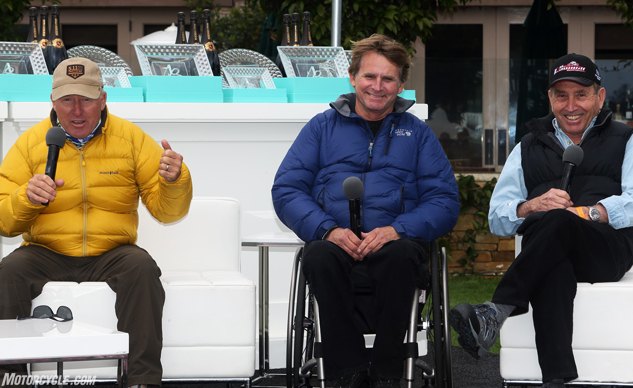
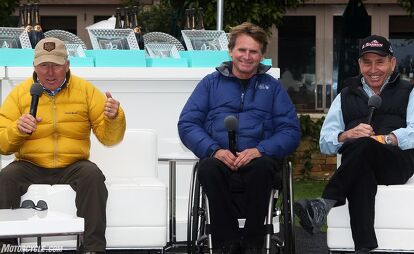








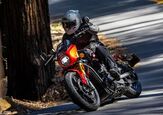
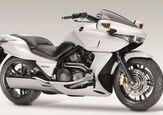
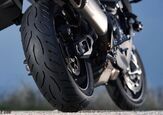
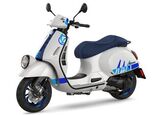
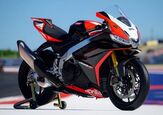
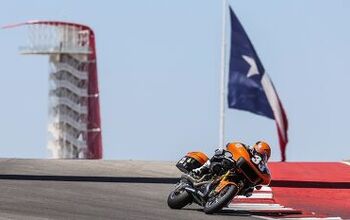
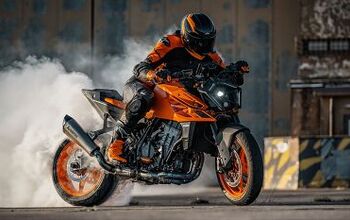
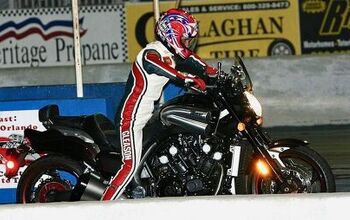
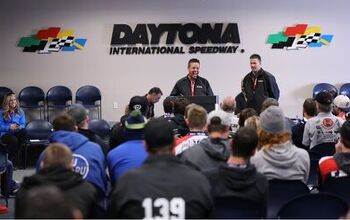
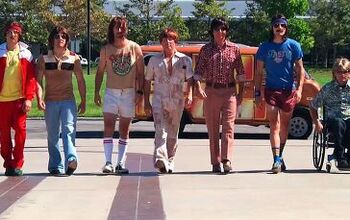
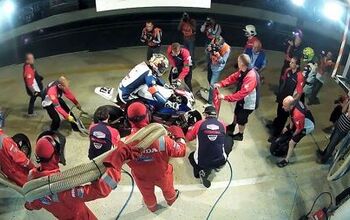
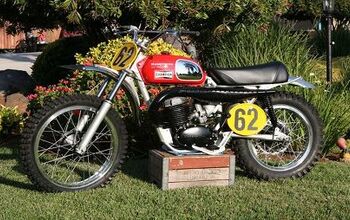
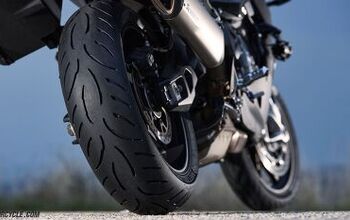

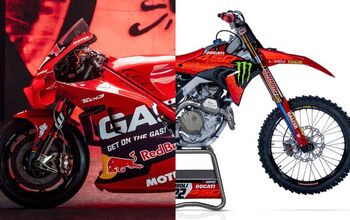
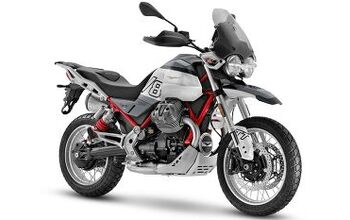
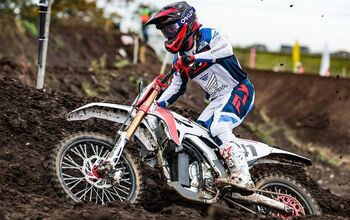
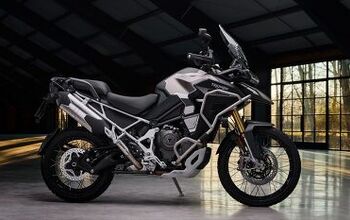
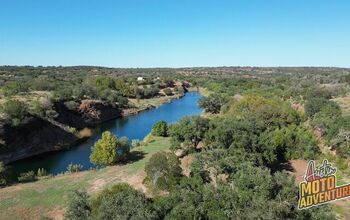
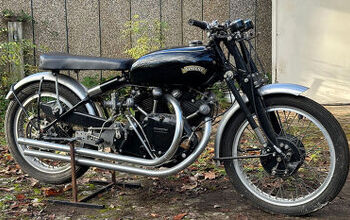
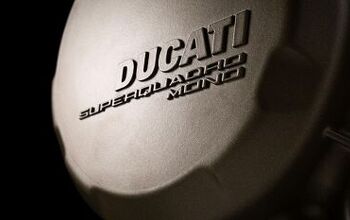
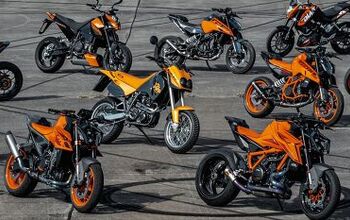
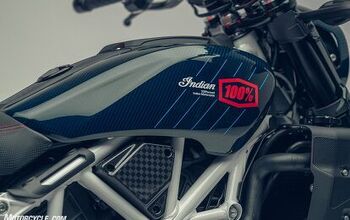
Comments
Join the conversation
These people are my heroes. My grandpa took me to see On Any Sunday when it first came out. By that time, I couldn't ride anymore due to a condition that destroyed all my joint cartilage, fusing my entire spine, both hips and other joints. I started riding my small dirt bike at the age of 9 in 1968, but by the age of 14, I couldn't even get my legs apart enough to straddle a motorcycle seat. I never thought I would ride again. At the age of 22, I started a long process of joint replacement surgeries and tortuous physical therapy for all the muscles that atrophied. I got my first street bike in May 1983. These are the guys that were my inspiration to keep going, reading about their racing and accomplishments. I started out racing in local junior classes at 9, following my family heritage of motorcycle racing going back to the board track era. I was able to participate in amateur/club road racing locally from 1985 to 1999, so I experienced my personal version of racing like my heroes, just not in the professional sense. Many thanks to these guys. I was ecstatic when Wayne Rainey, Chuck Aksland and the team they put together took AMA Pro back from DMG, the same DMG that told Gill Campbell "we see no value in motorcycle racing", when she was trying to get air time for the AMA Pro racing that weekend from Laguna. Then KRAVE went with beIN Sports, which had already botched coverage with WSBK numerous times and stopped showing the Supersport races about two years into their coverage. There are still people I know that can't get beIN because their cable company does not carry it. To add beIN to my line up, I have to pay an extra $240/year for a "sports" package. Yet CBS Sports, NBC Sports, Fox Sports, even MAV TV are in my basic package. I still have hope that MotoAmerica realizes how unavailable they have made MotoAmerica to thousands of long-time enthusiasts, even on-line streaming is restricted to beIN viewers ONLY. For the first time since Speed channel went on-air in the 90s, then off, and CBS Sports picked them up, I cannot watch my own national motorcycle racing series. I can't afford to add beIN to my line up, my budget is stretched to the limit. I would go with cable instead of satellite, but the cable provider doesn't offer beIN. At least I can enjoy British Superbike...
Legends!